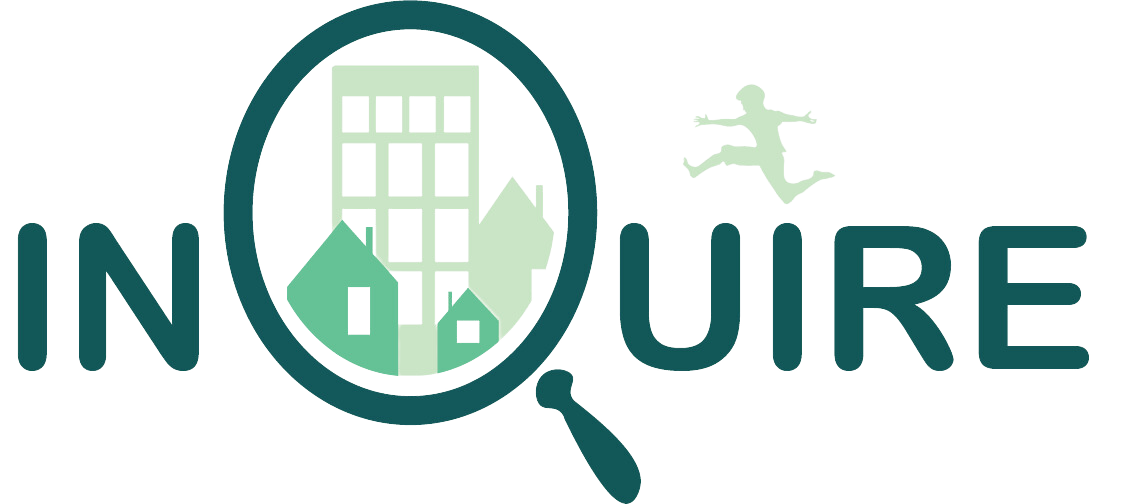Project Management & Advisory
This WP cover all field work to support WPs 2-6.
Objectives:
- To coordinate the preparation of the Consortium agreement.
- To steer and coordinate the project in relation to technical, administrative, knowledge and risk management and financial aspects.
- To report to the European Commission and ensure compliance with the Grant Agreement provisions.
- To ensure a continuous internal and external dialogue with experts (advisory board)
- To set the ethical documents and ensure compliance, including on matter of gender equality.
Deliverables:
- D8.1: Project, Knowledge, Risk and Ethical Management Plan [M4].
- D8.2: Project internal communication plan [M5].
- D8.3: Gender Equality Plan [M8].
- D8.4-D8.6: Management reports [M18, M36, M54].
- D8.7: Report on the status of posting results [M58].
Work package tasks:
Duration: M1-M60
Lead: NILU
Partners: MU, KI, VUA, UCAM, KI, VITO
Description: The task includes:
- Establishing a coordination structure with:
- a Project Coordinator Team (Coordinator, a Project Manager, a Scientific Deputy and an administrative support team),
- a Steering Board consisting of WP-leaders and the project coordinator,
- an Advisory Board for Science and Ethics (ABSE) (consisting of 4-5 external advisors),
- a General Assembly consisting of minimum one delegate from each Consortium Partner.
- Coordinate the preparation of the Consortium agreement.
- Maintain communication with the European Commission and coordinate the preparation of periodic reports.
- Develop a Project, Knowledge, Risk and Ethical Management Plan to be signed by all partners at the start of the project and followed up by the Project Coordination Team (spot-checks and routines for control).
- Develop guidelines for consortium internal processes,
- Distribute templates for documents/deliverables/presentation,
- Quality-check deliverables,
- Monitor the project progress on a daily base.
- Run risk management for project implementation.
- Address all potential deviation, corrective actions (if needed).
Duration: M1-M60
Lead: NILU
Partners: MU, KI, VUA, UCAM, KI, VITO
Description:
- Organise a kick-off meeting in M1.
- Establish/implement an Internal Communication Plan – secure IT tools for online collaboration; web-based management platform, virtual meetings, and shared internal data repositories.
- Organize, chair, annotate, and archive monthly meetings of the Steering Board.
- Organise bi-annual General Assembly meetings (n=10), including agenda development, logistic support, minutes and presentation archiving.
- Organise annual ABSE-meetings (n=5), occasionally in connection with the GA-meetings.
Duration: M1-M60
Lead: NILU
Partners: All
Description: This task deals with budgetary, financial and legal protocols and reports that comply with the EC rules. The task will:
- Establish/implement protocols in relation to the agreed financial frame of the project as a whole and in relation to each partner including timely distribution of funding to partners and preparation of consortium financial statements.
- Prepare periodic management reports, including justification of costs and Form C of all beneficiaries.
- Prepare and ensure compliance of Grant Agreement with the aim of regulating the managerial bodies, the decision-making process and management of IPR and prior-existing knowledge.
- Carry-out audits according to the grant agreement rules.
Duration: M1-M60
Lead: NILU
Partners: MU, KI, VUA, UCAM, KI, VITO
Description:
- Develop the ethical documents and deliverables of the Project, Knowledge, Risk and Ethical Management Plan in T8.1 in collaboration with the external advisors in the ABSE. The plan will deal with:
- sensitive data, to ensure that partners seek ethical clearance with their respective country programs;
- scientific ethics, to ensure honesty and integrity in all parts of the scientific practice and results,
- ethical and jurisdictions requirements of Clinical studies, and
- unexpected findings (Table 3.1e). Initial ethics plans are further described in the ethical self-assessment section of the project proposal.
- Establish a gender action committee and develop a Gender Equality Plan to be signed by all partners. This will deal with:
- equal participation of men and women in the project, particularly in the more senior positions,
- actions related to reconciling work and private life,
- awareness raising, and
- gender in all steps of the work plan.
- Develop and implement requirements for Clinical studies in HE:
- study initiation package,
- midterm recruitment report, and
- report on the status of the posting results.
Duration: M8-M24
Lead: NILU
Partners: MU, INEGI, JSI, VUA, KU, UCAM, ISS, HB, TU, SU, NILU
Description: Focused study for IAQ determinants’ source identification will be carried out in the same homes of T1.2, with homes supplemented to ensure coverage of desired variables (supported by local partners). The characterization of the outdoor environment as source will done for each home based on indoor/outdoor levels of determinants (by NILU, JSI) and the spatial analysis conducted under WP5. Baseline sample collection from T1.3 will be supplemented with active air and aerosol sampling (30 samples across 3 countries), and direct measurements of building materials and consumer products (800 articles, distributed between 30 homes in 3 countries), by VUA in WP2.
Duration: M12-42
Lead: KU
Partners: UCAM, MU, NILU, VUA
Description: Short-term variations will be assessed in four sampling periods throughout a 1-year period in three locations (UK, Sweden, and Slovenia, 10 homes per location). Longer-term variations will be assessed through comparisons with archived indoor dust from the SELMA Study collected from 2007 to 2010 in the same households. Under WP4, based on outcomes from WP1 and 2, selected strategies to improve IAQ and reduce hazardous substances in homes will be designed, and deployed in a subset of 100 homes (distributed in all regions); baseline sampling will be repeated to assess/validate the effectiveness of the strategies by comparison with prior IAQ (T1.3).
Duration: M14-M36
Lead: MU
Partners: JSI, UCAM, INEGI
Description: Home “profiling” (see methodology) will be done, combining geospatial data from WP5 T5.3, questionnaire information, outdoor AQ sensor data, basic home parameters (age, building type), household activities, and IAQ parameters generated by the compact sensors. Home profiles will elucidate major patterns and covariances between sets of parameters at European levels, useful for the definition of policy strategies.
